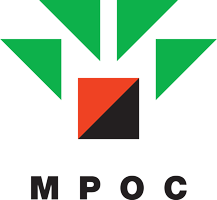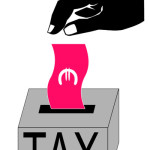Malaysian Palm Oil Council Condemns Vote on French Palm Oil Tax
National Assembly Proposal Has No Intellectual or Economic Credibility
Kuala Lumpur – The Malaysian Palm Oil Council (MPOC) today condemns the vote in the French National Assembly that imposes a discriminatory tax on palm oil produced in the developing world. The tax has been passed in a vote of MPs in the National Assembly, despite having no economic or environmental credibility.
The tax was passed as part of the Biodiversity Bill, after Socialists MPs proposed a new 90EUR per tonne tax on palm oil. This follows an attempt in January by the French Senate to place a 300EUR tax on palm oil.
The rationale for the palm oil tax has been demolished in the French media in recent days:
- A report from French Professor Pierre Garello, commissioned by MPOC, highlighted that the MPs’ economic calculations were misleading and wrong
- The leading European oils industry body, FEDIOL, called the tax discriminatory and said it should be rejected
- Food Navigator published an article highlighting the lack of economic rationale for the palm oil tax
- La Tribune published an article from French academic Cécile Philippe, who stated that ‘it is impossible that this new tax would protect the environment’.
- French opposition politicians, from multiple parties, tabled amendments to delete the proposed tax
The CEO of MPOC, Dr Yusof Basiron, issued the following statement:
“The vote in the National Assembly runs counter to all evidence, and instead supports a protectionist, partisan agenda that discriminates against palm oil from the developing world.
“The ‘differential’ tax proposal is a clear violation of both WTO and EU rules. The 90EUR tax is both discriminatory and disproportionate. The economic arguments put forward by MPs have been clearly shown to be false. The environmental arguments put forward by green activists have been clearly shown to be false. It is extremely disappointing that French MPs have chosen protectionism over evidence-based policy.
“MPOC calls on French President Francois Hollande, and Foreign Minister Jean-Marc Ayrault to stop this tax. M. Ayrault promised to the people of Malaysia in 2013 that he would not tax palm oil. He promised to the 300,000 small farmers in Malaysia that France would not harm them with a new tax. We expect this promise to be kept.”
Facts on Taxation
The new economic analysis – conducted by Prof. Pierre Garello from Université Aix-Marseille – shows the following facts about palm oil taxation in France:
- Palm oil is currently already over-taxed in France, compared to other vegetable oils.
- The current tax levels for vegetable oils in France are –
- Olive oil: 4.9% tax
- Rapeseed oil: 11.69% tax
- Sunflower oil: 15.79% tax
- Palm oil: 21.67% tax
- Soybean oil: 23.64% tax
- The additional tax on palm oil would raise this tax discrimination to extraordinary levels. The levels proposed by the Senators and MPs are:
- Olive oil: 4.9% tax
- Rapeseed oil: 11.69% tax
- Sunflower oil: 15.79% tax
- Soybean oil: 23.64% tax
- Palm oil (National Assembly proposal): 40.47% tax
- Palm oil (Senate proposal): 209.7% tax
The facts are clear. Claims from the Senators and MPs that palm oil is under-taxed are untrue. There is no economic justification for this proposed tax.
Key Facts About Malaysian Palm Oil
Malaysia is the second-largest producer of palm oil, and a major exporter. The Malaysian Palm Oil Council (MPOC) represents the interests of palm oil growers and small farmers, in Malaysia.
40% of all palm oil plantations in Malaysia are owned or farmed by small farmers, who have benefited from oil palm cultivation. Palm oil has been a major factor in Malaysia reducing poverty from 50% in the 1960s, down to less than 5% today. The palm oil industry directly employs more than 570,000 people, with another 290,000 people employed downstream.
Economic Impact of Palm Oil in France
According to respected economic analysts Europe Economics, palm oil contributes substantially to the French economy. 4,600 jobs in France are dependent on palm oil imports; palm oil contributes 167m EUR in tax revenue to France; and over 323m EUR in French GDP is attributed to palm oil imports.
Environment
The allegation that Malaysia is deforesting and destroying biodiversity is inaccurate. The Malaysian Government has committed to protecting at least 50% of land area as forest – a bold and far-sighted environmental commitment that no other country has matched, including France.
This commitment by Malaysia has been recognized by the United Nations, and the World Bank, among others. Malaysia is a recognized world-leader in forest protection.
Malaysia is committed to a balanced policy that allows for both land development for agriculture (including palm oil) and forest protection. Palm oil covers just 0.03% of the world’s agricultural land, and has the highest yield of any oilseed crop.
Health & Nutrition
Palm oil is a balanced oil, with 50% saturated and 50% unsaturated fatty acids. This balance provides excellent qualities for baking and food production. Palm oil is free of GMOs, and has also been used as a replacement for dangerous trans fats, in Europe.
Multiple researchers and experts in France and across Europe have confirmed that palm oil is safe. A study from the French Foundation for Food & Health, explained that palm oil is not hazardous, and the amounts consumed in Europe are perfectly normal.
Similarly, a study in 2014 from the Mario Negri Institute in Milan, authored by Drs Elena Fattore and Roberto Fanelli, confirmed this point. The study found no evidence that palm oil is harmful.










Leave a Reply